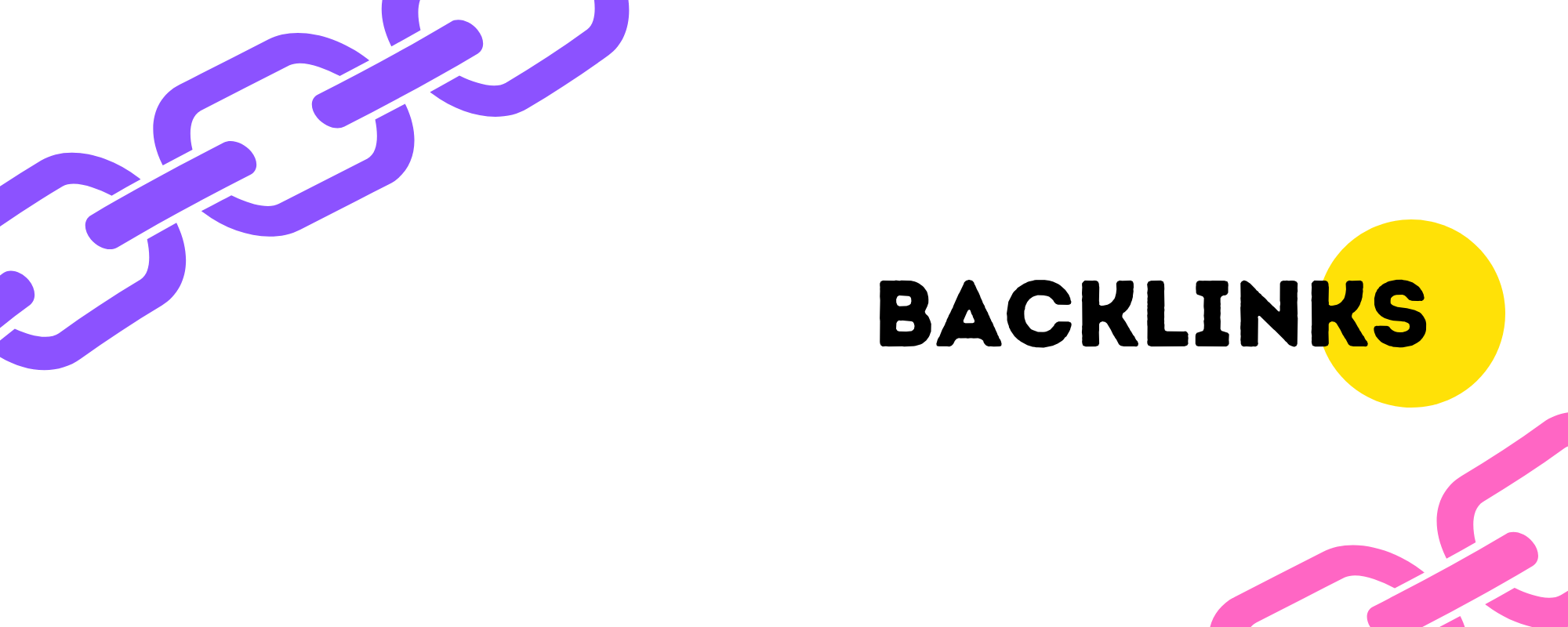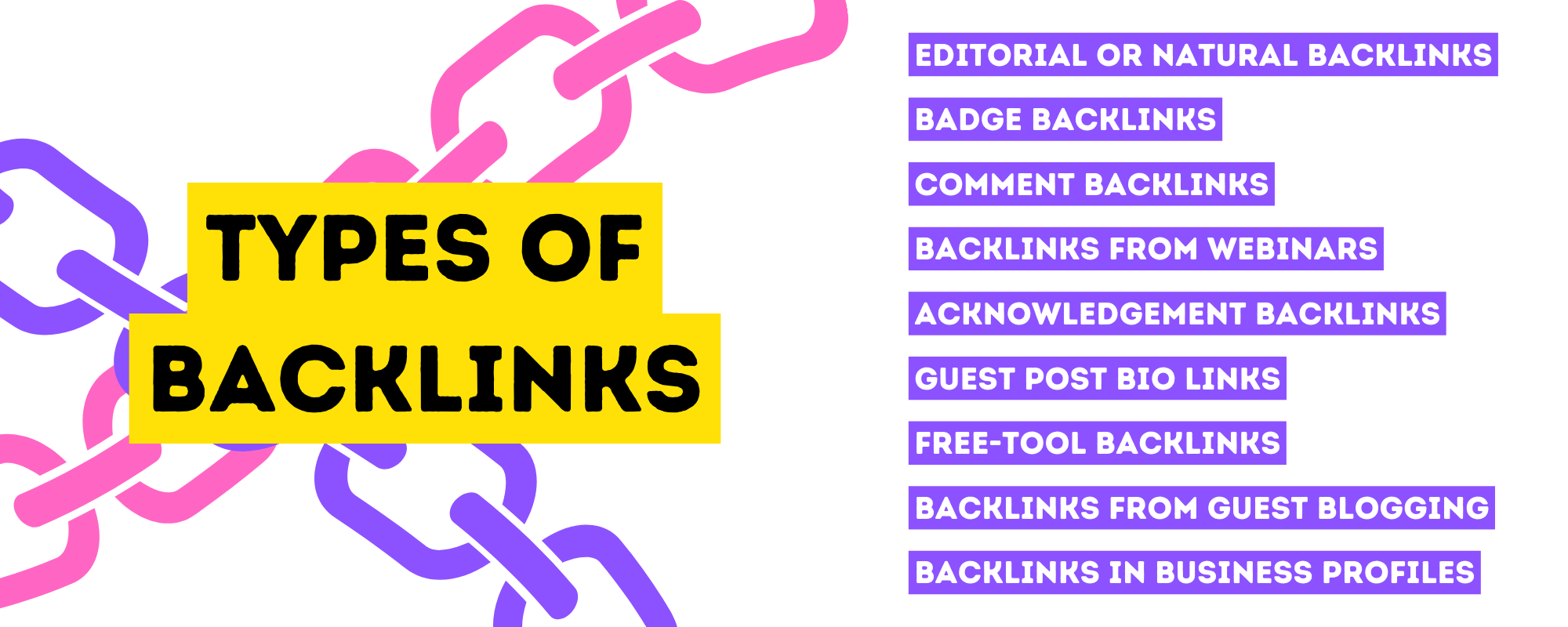Backlinks are like digital referrals from other websites to yours. It’s an important part of SEO (search engine optimization). When reputable websites link back to your site, it tells search engines that your content is valuable and trustworthy. This boosts your website’s authority and improves its search engine rankings.
The more relevant and reputable websites that link back to yours, the higher your website climbs in the search engine rankings. That top position is like a prime piece of real estate in the online world.
It means more organic traffic and greater exposure for your startup which leads to more customers and success.
What are Backlinks?
Backlinks are links that point from one website to another. When another website includes a link to your site on one of its pages, that’s a backlink. It’s like a vote of confidence from one website to another.
Search engines see backlinks as a sign of trust and credibility. When your website has lots of high-quality backlinks from reputable sources, it tells search engines that your site is worth checking out. And you know what that means? It means your website gets a nice boost in search engine rankings.
But here’s the thing: search engines don’t just count the number of backlinks. They evaluate them based on a few factors.
First, they look at the authority and credibility of the websites linking to you. If a well-known and respected website is linking to yours, that’s gold in the eyes of search engines.
Second, they consider the relevance of the linking website’s content to yours. If the content is related to your industry or topic, it adds more weight to the backlink.
Lastly, the words used in the link itself, known as anchor text, also matter.
When the anchor text is descriptive and relevant, it helps search engines understand what your website is all about.
Building a diverse and natural link profile will help you make a solid impression on search engines.
How to Get High-Quality Backlinks
The combination of backlinking and being quoted on a reliable website will increase traffic to your website. To increase your probability of receiving a quote, it helps to focus on the best-performing content in your niche and add some backlink building practices.
1. Content creation and promotion
When it comes to getting those high-quality backlinks, one of the best approaches is to focus on creating awesome content and promoting it effectively.
You want to provide something that your audience finds helpful, informative, or entertaining. It could be a well-researched article, a comprehensive guide, an engaging video, or anything that grabs their attention.
The key is to make your content stand out from the crowd and offer something unique. When your audience loves what you’ve created, they’re more likely to share it with others.
But here’s the thing: you also want to encourage natural backlink acquisition through the quality of your content. When you create something truly valuable, other websites and bloggers will naturally want to link to it as a reputable source.
So, focus on producing high-quality content that provides real value to your audience. This could be through offering expert insights, solving a problem, or providing in-depth information.
The better your content, the more likely it is to attract those coveted backlinks.
2. Outreach and relationship building
Take some time to research and find those who are relevant to your industry or niche. Look for websites that share similar interests or cover topics that align with your target audience.
Likewise, seek out influencers who have a strong presence in your industry and a following that matches your target demographic. Make a list of these potential partners so you can reach out to them later.
Now, it’s time to make the connection. Start by personalizing your outreach efforts. Show that you’ve done your homework and genuinely appreciate their work.
Mention specific articles or content they’ve created that resonated with you. Let them know that you value their expertise and the value they provide to their audience.
When you reach out, focus on offering something of value. Think about how you can benefit their audience or enhance their content.
Maybe you have a unique perspective or some valuable insights to share. Perhaps you’ve created a resource or tool that complements their content perfectly. Highlight the ways in which collaborating or linking to your content can be mutually beneficial.
Remember to keep your tone genuine and polite throughout the process. Avoid using generic or spammy messages. Be respectful of their time and make it clear that you understand the value they bring to the table.
And don’t get discouraged if you don’t receive an immediate response. People get busy, and sometimes emails can slip through the cracks. In those cases, it’s perfectly acceptable to send a friendly follow-up email after a reasonable period.
Building relationships is the key here. It’s not just about a one-time link; it’s about establishing connections that can lead to ongoing collaborations and link opportunities.
3. Guest blogging and contributorship
Look for websites that have a solid reputation in your industry or niche.
You want to find blogs that are well-known and respected, with an engaged audience that aligns with your target demographic. Take the time to research and make a list of these potential platforms.
Get to know that blog and its audience. Take a deep dive into their content and understand what kind of topics they cover. Pay attention to the style and tone of their articles, as well as the preferences of their readers.
This will help you tailor your guest post to fit their audience’s interests and needs.
Next, come up with a unique and engaging topic that will catch the attention of both the blog owner and their audience. Think about a fresh angle or unique insights you can provide on a relevant topic.
The goal is to offer something valuable that hasn’t been extensively covered before. This will make your guest post stand out and pique the interest of readers.
Once you have your topic, craft a well-written article that showcases your expertise and provides actionable information. Make sure your content is original, well-structured, and supported by credible sources.
Focus on delivering value and addressing the needs of the blog’s audience. Remember, you want readers to walk away with practical insights and actionable takeaways.
Within your guest post, strategically include a relevant backlink to your website or a specific page that adds further value. Make sure the backlink is contextually relevant and seamlessly integrated into the content.
4. Social media and online communities
Social media is a powerful tool you have at your fingertips. Take advantage of platforms like Facebook, Twitter, Instagram, LinkedIn, and others to promote your content and earn valuable backlinks.
Share your blog posts, articles, videos, or any other valuable content on your social media channels. Craft engaging captions or descriptions that entice your audience to click through and read your content.
Don’t be afraid to ask your followers to share your content if they find it valuable. This can increase engagement and the likelihood of others sharing your content, potentially leading to more backlinks.
Engaging with your audience is also key. Actively engage with your followers and build a loyal community. By doing so, you encourage people to visit your website and share your content organically.
Online communities are treasure troves for link building opportunities. Find relevant communities, forums, and discussion platforms that cater to your industry or niche.
Join these communities and become an active participant. Establish yourself as a knowledgeable and helpful member of the community. When appropriate and within community guidelines, strategically share your content.
Ensure it’s valuable, relevant, and contributes to ongoing discussions. This can drive traffic to your website and potentially earn you backlinks as others find value in your content.
Types of Backlinks
There are nine types of backlinks with various weights, depending on the domains. You can create link-building strategies using these backlinks to get high-quality links that will improve your SEO.
1. Editorial or natural backlinks
These are the gold standard of backlinks. They are earned naturally when other websites find your content valuable and link to it without any solicitation.
Editorial backlinks are often the result of high-quality content, thought leadership, or industry expertise.
2. Badge Backlinks
Creating badges or awards that can be given to other companies or websites in recognition of their achievements or excellence is a clever strategy to generate backlinks. When websites proudly display these badges, they often include a link back to your website, providing visibility and credibility.
3. Comment Backlinks
Leaving valuable comments on blog articles can sometimes earn you a backlink to your website. Engaging in meaningful discussions and providing valuable insights helps attract traffic and raise brand awareness through comment backlinks.
4. Backlinks from Webinars
Hosting webinars or participating as a speaker in webinars can lead to backlinks. When other websites find the information shared in your webinars valuable, they may link back to your website to reference or feature your company’s expertise, helping to increase your online visibility and authority.
5. Acknowledgment Backlinks
When your company sponsors events, makes donations, or supports industry initiatives, websites often display acknowledgments or mention your company. These acknowledgments can lead to backlinks, showcasing your involvement and generating exposure for your website.
6. Guest Post Bio Links
In guest blogging, while direct backlinks within the article may not be allowed, you can typically include them in the author’s bio section. These bio links help readers connect with your website, boosting your online visibility and authority.
7. Free-Tool Backlinks
Offering free tools or resources, like calculators or downloadable guides, attracts backlinks from websites that find them valuable. These backlinks offer long-term SEO benefits.
8. Backlinks from Guest Blogging
This type of backlink is acquired through guest blogging, which involves writing and publishing articles on other websites as a guest author.
Within the guest post, you can include links back to your own website, providing an opportunity to showcase your expertise and generate traffic from the host website’s audience.
9. Backlinks in Business Profiles
When you create profiles for your business on various platforms such as business directories, social networks, industry directories, and review sites, you often have the option to include links back to your website.
These backlinks from business profiles serve as a signal to search engines that your business is established and can contribute to your website’s credibility.
How Outsourcing Helps with Building a Strong Backlink Profile
Link building is a lengthy and costly procedure that needs expertise to produce the best outcomes.When a business lacks the time, finances, or skill to create and implement an effective strategy, they frequently outsource link development.
Benefits of outsourcing backlink building
1. Time and Resource Optimization
Building a robust backlink profile requires significant time and resources. By outsourcing this task, you can free up your internal team to focus on other core business activities. This optimization allows you to make the most of your resources and ensure that backlink building receives dedicated attention from experts.
2. Increased Efficiency
Professionals who specialize in off-page SEO or backlinking have efficient systems in place, allowing them to execute tasks more effectively. They can research potential link sources, conduct outreach, and optimize content with speed and precision, saving you time and effort.
3. Scalability and Flexibility
Outsourcing provides scalability, allowing you to adjust the level of backlink building based on your needs. Whether you require a few backlinks as part of your SEO or during an advertising campaign, outsourcing can accommodate your requirements. It offers the flexibility to scale up or down as your business demands change.
4. Industry Insights and Best Practices
Professionals who handle outsourced backlink building are immersed in the industry and stay up-to-date with the latest trends and best practices. They bring valuable insights and knowledge to the table, helping you implement effective strategies and stay ahead of the competition.
Tasks that Can Be Outsourced for Effective Backlink Building
1. Researching and Identifying Potential Link Sources
This involves finding suitable websites and blogs that align with your industry or niche and have the potential to provide valuable backlinks. They can uncover hidden opportunities and ensure that the websites chosen for outreach have a high likelihood of providing quality backlinks.
2. Outreach and Relationship Building
Building relationships with website owners, influencers, and bloggers is an integral part of acquiring backlinks. Outsourcing the outreach process allows skilled professionals to handle the communication on your behalf.
They have the experience and know-how to craft personalized and persuasive outreach messages that increase the chances of securing backlinks.
3. Content Creation and Guest Blogging
Creating high-quality content and securing guest blogging opportunities are effective ways to earn backlinks.
Outsourcing content creation to experienced writers ensures that you consistently produce valuable and engaging content that resonates with your target audience.
Considerations when outsourcing:
One of the dangers of outsourcing link development is hiring an unqualified outsourcing partner; this can lose you money, time, and the links that got the whole thing going.
As a starting point, consider the following practices:
1. Select reputable and trustworthy agencies or freelancers.
Look for agencies or freelancers with a proven track record of success in the industry. Check their portfolio, client reviews, and testimonials to gauge their expertise and reliability.
Consider their experience, knowledge of SEO best practices, and adherence to ethical guidelines for acquiring backlinks. A reputable partner will prioritize quality over quantity and employ strategies that align with search engine guidelines.
2. Communicate and coordinate with the outsourcing partner.
Effective communication and coordination are essential for a successful outsourcing partnership. Clearly communicate your goals, objectives, and expectations to the outsourcing partner.
Provide them with comprehensive information about your business, target audience, and desired backlink sources. Regularly communicate and stay updated on the progress of the project.
Maintain open lines of communication to address any concerns, provide feedback, and make necessary adjustments along the way.
Collaboration and a strong working relationship with the outsourcing partner will ensure that your backlink building efforts align with your overall SEO strategy.
3. Set clear expectations and goals for the project.
Setting clear expectations and goals is an additional consideration when outsourcing your backlink building.
Clearly define what you want to achieve with your backlink strategy and communicate these goals to the outsourcing partner.
Provide them with specific metrics or targets you want to reach, such as the number of high-quality backlinks or improvements in search engine rankings.
Obtaining links from websites similar to your industry is a component of boosting your SEO. It tells search engines you’re truly part of the community, and your voice is worth hearing.
This can often entail hiring professionals to get the task done well while adhering to best practices and compliance. The ROI can persist for years to come.









